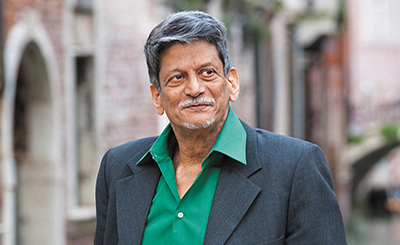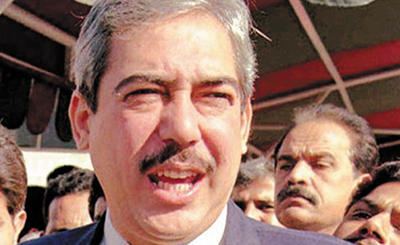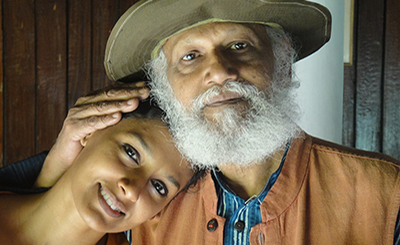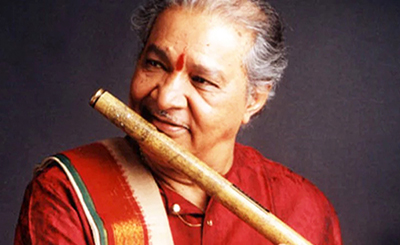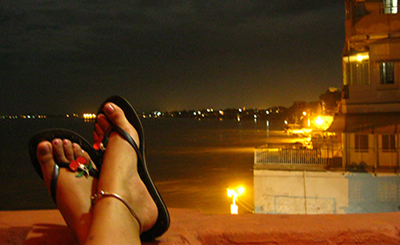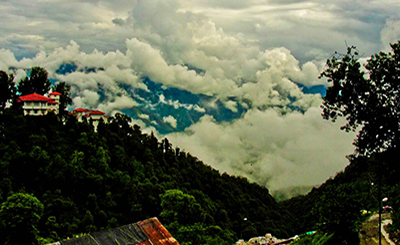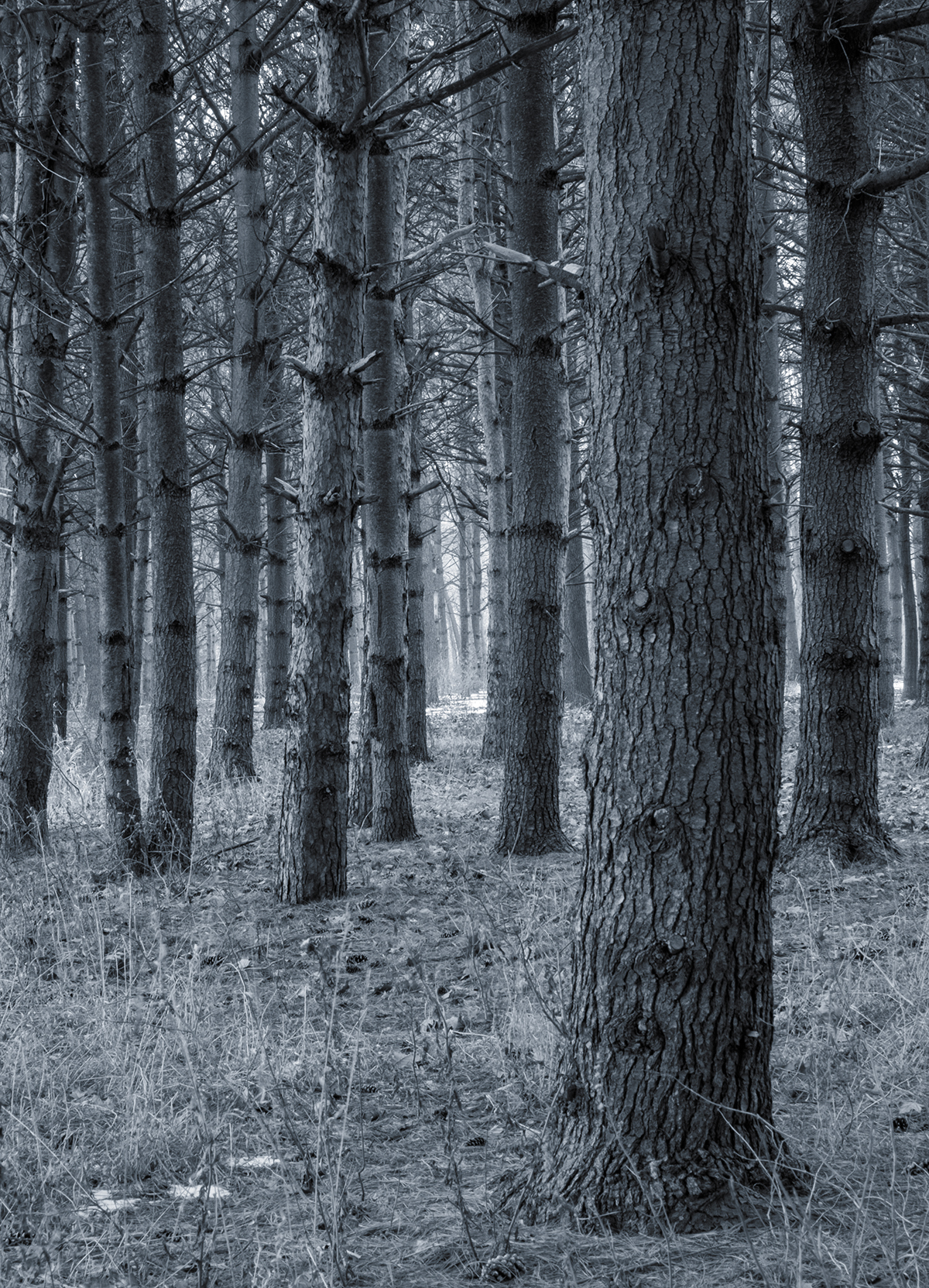
Poems by Maitreyabandhu under World Poetry/Prose Portfolio [WPP], curated by Sudeep Sen. Maitreyabandhu’s new collection Yarn (Bloodaxe) was published in autumn 2015. He lives and works at London Buddhist Centre
The Apple Argument
The visitor centre is closed, so I press my face
against the glass, my curious-about-art face,
my why-can’t-I-be-happy look, making sense
of the blackballing distress the posters
promise to ally: a mountain seen through pines,
a peasant smoking a pipe, a bather’s back.
Inside the room’s dark swim, the night porter
switches off the lights on colour reproductions –
the blue of his blue uniform blueing for a moment,
then turning off. I tap the glass then press
a lost letter against the pane, something from
Hortense or an early letter to his son that his son
has forgotten to destroy about the consoling
power of art. The porter crosses to extinguish
the lights on a photograph of the Somme,
the belly of France ripped out, her sons…
then Hitler marching in triumph into Paris.
I turn my back and somewhere in the night
smell oil-fed fires, scorching cloth, the muffled
nightmare I’d held an apple up against,
a woman sitting in a chair, a row of trees, as if
an apple or a pear held hard against the eye
might blot the terror out when barbarians come.
* * *
Grey Paper
‘The portrait of one madman by another’ was how
Degas styled the Portrait of Victor Chocquet,
the collector greeted by the press in the Third
Impressionist Exhibition, 1877, as a prime example
of ‘artistic insanity’. They were friends. Chocquet
spread his collection of watercolours across
the living room floor one day — sheets of yellowed
paper, one by Delacroix with flowers seemingly
at random on grey paper. And both men wept
down there on their knees among the lovely marks.
But how the friendship started was in the back
of Père Tanguy’s shop where Chocquet bought
the Three Bathers for thirty francs, saying how well
it would look between his Delacroix and Courbet.
But his wife, he wondered, his wife might disapprove
of heavy hair and thighs against a blue-green
fire of ticks. So he asked Renoir to pretend
he’d painted it himself and left it with them
for safekeeping or on some pretext, assuming
Madame Chocquet would get used to it in time.
Returning Chocquet’s letter of congratulations
on his marriage to Hortense, Cézanne wrote
‘I should have liked to have your stable outlook’
before wishing him the best with his vegetables.
After Chocquet’s death, Cézanne questioned
Vollard about the Chocquet sale and the flowers
by Delacroix mentioned in his will. Vollard bought it
for a thousand francs and gave it to the painter
who kept it in his bedroom close at hand but
turned against the wall to make sure it didn’t fade.
* * *
Two Birds for Kabir
A tree was growing in the sky
on which two birds were darkly perched.
The air was blond; the earth was grey.
The tree was silver, like a birch.
The tree was like a winter tree –
no leaves were gathered round the base
nor did it bow in sympathy
to make a shrine or sheltered place.
One bird was on a higher bough.
She watched the other eat the fruit
that, plump within a holy Now,
grew as an everlasting truth.
And as she ate, the juice that dripped
was falling into empty space
in shining devanagari script
like hot tears on a chela’s face
or beads from a broken rosary.
And so they perched forever there –
two birds upon a rootless tree,
one eating, one in silent prayer.
* * *
Deficient Postage
I went to Emma Street to join the queue
of fathers, mothers, a boy with a palm tattoo
holding out his card that said Sorry
you weren’t in. Two assistants like servers
at the altar gave out envelopes
from all around the world – China, Europe,
the USA – and every man and woman,
stopping to turn them over in the sun,
studied the familiar, half-familiar writing
or tore the tape off cardboard packaging.
Were they finally remembered? – the man
in shorts, the woman backing up her pram:
were they loved or disappointed, cherished
or oppressed? Each one made their triple wish:
to care, to change, to take things at face value.
I went to Emma Street to join the queue.
* * *
The World of Senses
I yearn for this much-prized, painful love —
his smile, the way he moves his hips
when he cuts a loaf or stirs a soup
or my chest against his back – this love
that quietly lifts away when he falls asleep.
I yearn for this much-desired success —
vaulting ambition, rapt applause
as I bend to take my seat, awards
received in feigned surprise – success
that barely adds a farthing to my store.
But I never yearn for you, the Lotus Born —
frown and smile and trident staff,
illumined image through which I’d pass
beyond this world of senses, borne
across the waters, safely, by your raft.
* * *
Seasonal Prayer
This knotted garland of success,
daffodils and crocuses
that grow in every council park –
nature’s exclamation marks –
in such deluding fantasy,
may the Buddhas bear with me.
This stubborn feeling of despair,
snow-sleet in the freezing air
that blows across a mountain lake
and makes its darkness concentrate:
in such a sickness of self-pity,
may the Buddhas bear with me.
* * *
The Dolphin
Again it swims back into view,
the dolphin of depression,
grey-eyed, grey and jumping through
the burning hoops of passion,
then diving to a colder district –
shadow, a wheel of shadow –
where eels and multicoloured fish,
the hopes for my tomorrow,
‘I won’t be jealous any more,
I’ll concentrate…’ all this
(and love of course, the bedroom door
shut tight) ‘makes much amiss’
as another poet said.
A wasteful sun comes out
and daylight sparks the coral bed;
the quivering waterspout,
a rippling stalk that holds aloft
the beach-ball of delight
to whoops and cheers, is tempest-tossed
and falls, the show is blighted
and again it swims back into view,
the dolphin of depression –
the grin is false, the song untrue,
the tricks are out of fashion.
More from The Byword
Comments
*Comments will be moderated




